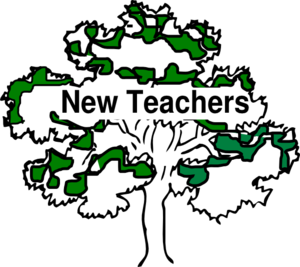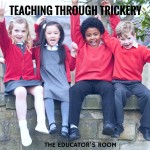Welcome to The new Teacher’s Survival Guide! This is part three of a five-part series. Start from the beginning with part one, here.
[fusion_builder_container hundred_percent=”yes” overflow=”visible”][fusion_builder_row][fusion_builder_column type=”1_1″ background_position=”left top” background_color=”” border_size=”” border_color=”” border_style=”solid” spacing=”yes” background_image=”” background_repeat=”no-repeat” padding=”” margin_top=”0px” margin_bottom=”0px” class=”” id=”” animation_type=”” animation_speed=”0.3″ animation_direction=”left” hide_on_mobile=”no” center_content=”no” min_height=”none”]
Every Friday, I ask my students to write down for me three things they got from class that week. It can be something from the content, something brought in by a peer (such as a current event), something they learned about themselves; whatever. As we started Economics this week, I was expecting students to note whether they like the class or not – and much to my frustration, many noted that they do not like Economics.
I’m frustrated; I really am. I tried so hard this week to demonstrate why Economics matter. Hell, our entire course question is “what makes an economy be up or down, and how does that impact your life opportunities?” We spent the entire first day talking about the recent recession and how that has screwed over young people entering the job market. We talked about foreclosures, credit cards, savings. We read parts of the books Freakonomics and Naked Economics. Yet many of my students say the class is “boring,” “sucky,” or something that they “don’t like at all.”
But here’s the thing: this is why I ask them for three things every Friday. I value checking in with my students to see what sticks, what they’re thinking about, and what may require revising. While it often becomes a source of validation (“I learned that I can change the government if I don’t like it!”), it also is an opportunity to revisit my lesson plans and how I am framing the course.
And here’s the other thing: I consider myself a social justice educator. I believe that public schools have often been the site of oppression and reproducing the existing systems of power – and yet education has this amazing transformative potential to challenge and change those very systems (see Freire’s Pedagogy of the Oppressed). Through education, students can become empowered agents in the world. Social justice starts with meaningful, relevant lessons.
So how can I actually practice what I preach? I am finding a handful of inspiration through The New Teacher Book, published by Rethinking Schools. In “12 Tips for New Teachers,” Larry Miller reminds me that the connection between students and content must be explicit and strong. He writes, “Whenever possible, connect your classroom discussions and curriculum to students’ lives, community, and culture. Learn as much as you can about your students.” While the recession and ensuing job market are totally relevant to my students, perhaps it still feels too disconnected and distant from their everyday experience. Perhaps—without losing sight of the bigger picture—I ought to plan lessons that more directly consider their immediate experiences with laid-off parents, foreclosed-upon homes, and changing spending habits. (And do so, of course, in a safe environment that does not single out students!)
In the same book, Gregory Michie advises new teachers to start small with the integration of social justice. It can be overwhelming to try to take on too much at once, so baby steps are appropriate – and the biggest place for meaningful and relevant education is in the environment established in the classroom. He writes, “Kids can learn about equity and justice from the way community is formed in a classroom, how decisions are made, who is represented on the walls and bookshelves, what sorts of interactions are encouraged and discouraged, whose thoughts and ideas are valued, and, yes, even what’s on the bulletin boards” (47). Even if I have a sucky lesson plan on basic economic terms, at least that lesson is being conducted in a warm, safe space where student voices are valued – and where they feel comfortable enough to tell me that the readings were boring!
I am learning valuable lessons in my own experience as well. For example, I’m finding the most effective way to stay focused on meaningful lesson plans is to answer the “so what” question. Why are we learning this? Why should my students even care? I have a “so what” question that structures my entire course (noted above), a question for each unit, and a “focus question” for each day’s lesson (written on the board, and read out loud by a student). Tomorrow we start economic systems and theories. Our unit question is, “How are we capitalist, and what other alternatives are out there?” and tomorrow’s focus question is, “What’s the difference between capitalism, socialism, and communism, and why should you care?” By forming these questions, it helps steer my actual lesson toward that connection to students.
Second, I continue to find the value in creating a strong support network for myself. By being able to talk out ideas with others I trust, I’m able to sharpen the meaning in the lesson and get feedback. Currently I am working with a good friend to create a weekly new-teacher support and study group where this work can take place.
But the most effective way to create meaning in one’s lessons is to be the type of teacher who cares to create meaning. To remain open to new ideas; in touch with current events in the world, nation, and local community; and to care enough about the students to make sure their schooling experience helps shape them into empowered, holistic human beings.
So what about you? How do you make meaning in your lessons? How do you connect to students’ lives, experiences, and cultures? This is a great place where we can create community with each other!
On deck for next week: retaining relationship and authority with students, especially when most new teachers (myself included) are on the younger side themselves. Check back and participate in the discussion![/fusion_builder_column][/fusion_builder_row][/fusion_builder_container]




